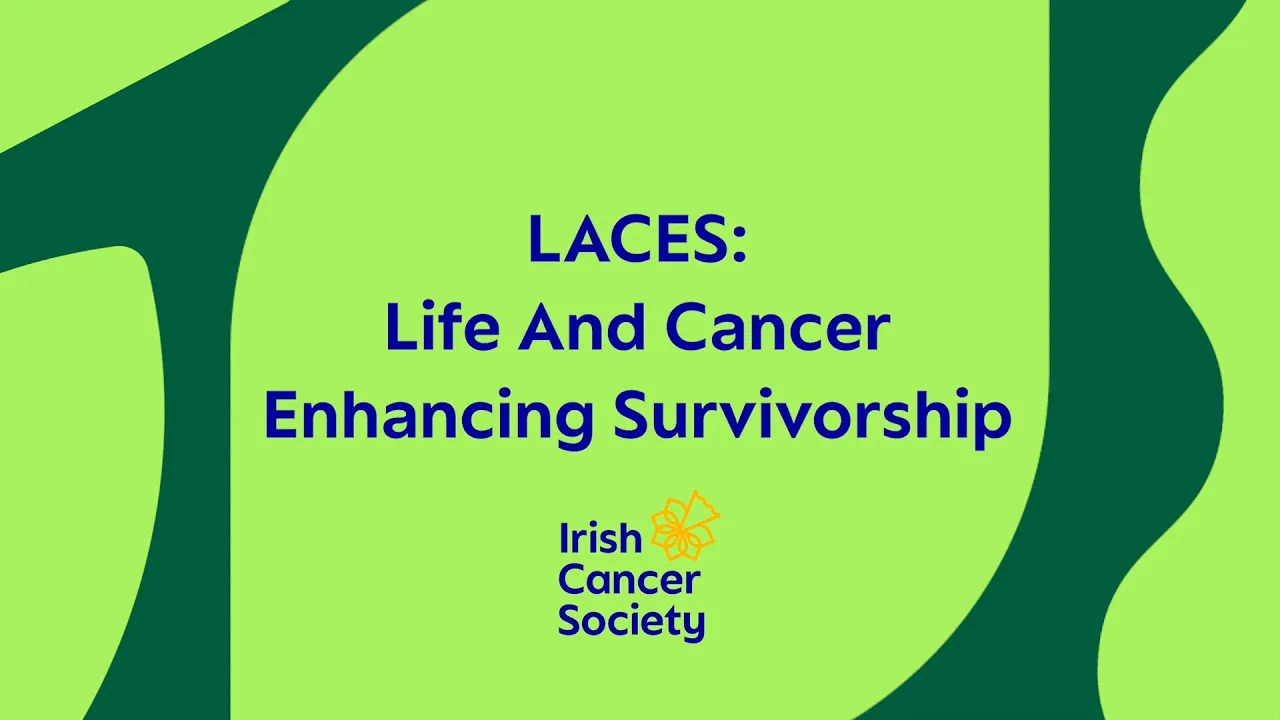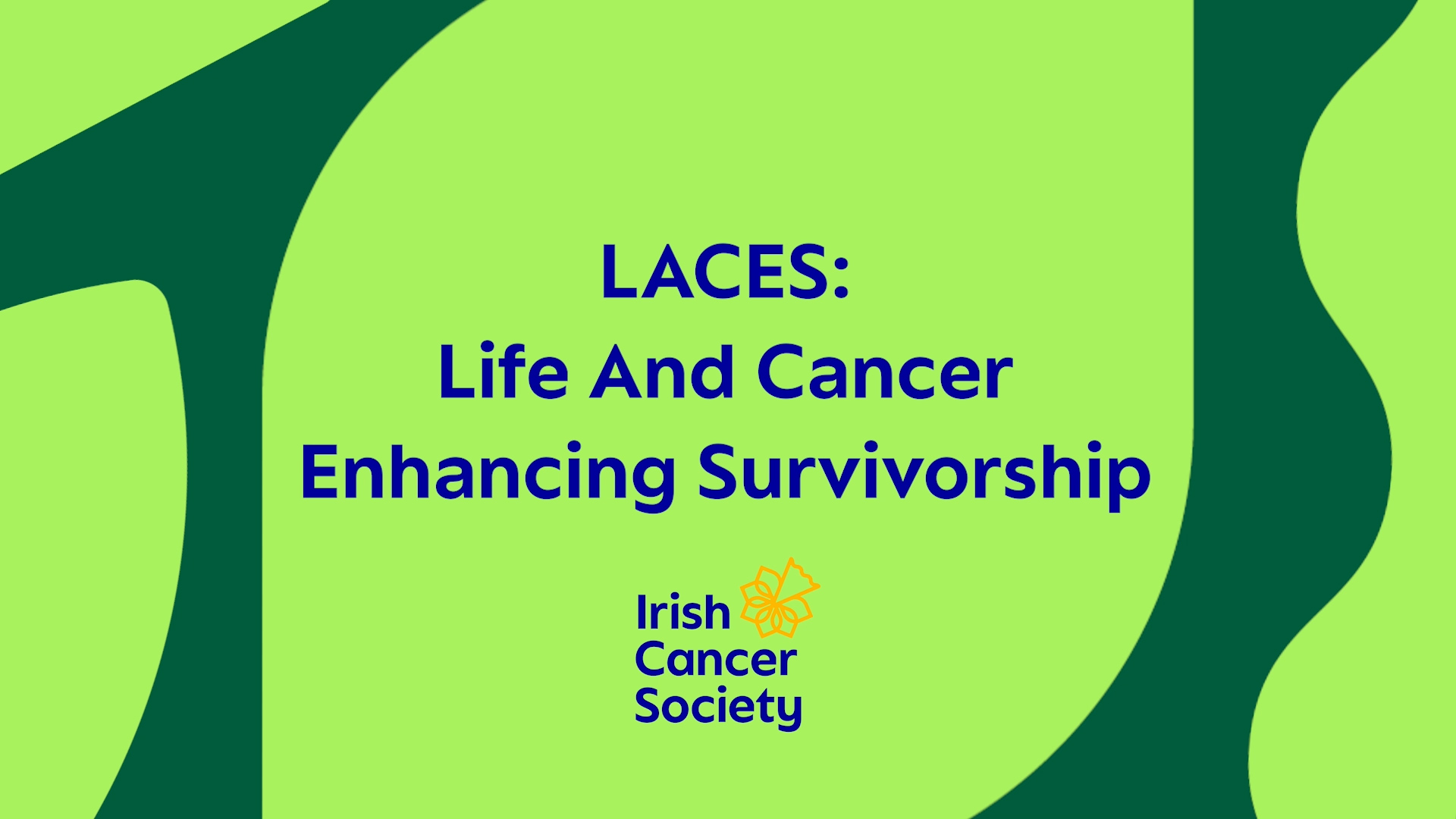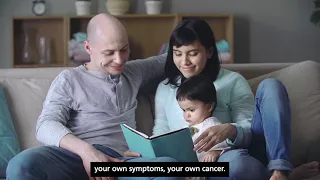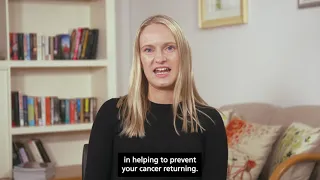LACES 4: Food
LACES: Life And Cancer - Enhancing Survivorship. A workshop from the Irish Cancer Society. Part 4: Food
0:01
LACES, Life And Cancer - Enhancing Survivorship Workshop.
0:14
Module 4: Food and Drink – In this module we will talk about the benefits of eating well and give you some tips on making healthy choices.
0:29
Question: Now that I have finished my treatment, can I go back to my previous diet?
0:35
You may need to make some changes now that you have finished treatment. During your treatment, your dietitian may have advised you to follow a high protein diet and may have taught you how to add additional calories and protein to your food. They may even have started you on oral nutritional supplement drinks.
0:53
If this is the case for you, and you have been losing weight or have had a lack of appetite, it's important that you continue to follow this diet until your weight has stabilised and until your appetite has returned to normal.
1:06
You will need to continue with this diet until your dietitian or your speech and language therapist advises you that this is no longer necessary.
1:14
If you have not been advised to follow a specific diet by a healthcare professional, then I suggest you follow a healthy balanced diet.
1:24
Question: Would you recommend taking vitamins and mineral supplements?
1:30
The World Cancer Research Fund recommends against the use of nutritional supplements. They would rather you would get as much vitamins and minerals as you can from the foods that you eat.
1:40
Eating a wide variety of fruit and vegetables, and choosing foods from every different food group can be a good way of ensuring that you get enough vitamins and minerals in your diet.
1:50
There may be one exception to this, and that is in vitamin D. Ireland is a country that does not get a lot of sunshine, as you know. And, as such, some people in Ireland may be deficient in vitamin D.
2:04
You can increase the vitamin D level in your diet by choosing foods that are rich in vitamin D such as oily fish, including salmon and mackerel.
2:15
Question: What do you recommend for staying healthy?
2:21
As you probably already know, eating well and staying physically active are important for your overall health and wellbeing. Research shows that having a healthy diet, and in particular maintaining a healthy body weight is important for helping to prevent your cancer from returning.
2:26
Increased body fat has been linked to a number of different cancers, particularly body fat around the abdominal or tummy area.
2:44
It is important that you try to keep your weight as low as possible and within a healthy range. Maintaining a healthy body weight has been shown to be a very important factor in helping to prevent your cancer returning.
2:58
Question: How can I calculate my Body Mass Index (BMI)?
3:04
When I'm talking about a healthy range, I'm specifically referring to a body mass index of between 18.5 and 24.9. Body mass index is a measure of your weight for your height. You can calculate your body mass index when you know your weight in kilograms and your height in metres.
3:22
You can calculate your own body mass index using an online BMI calculator, and we have provided you with links in your resource pack to these online calculators. There is further information in your booklet about how you would go about calculating your own body mass index.
3:40
Question: What kind of foods should I be eating?
3:47
You should have up to 7 portions of fruit and veg per day, and base your meal on roughly 50% fruit and veg, choosing salad options, and a wide variety of colours.
3:59
You should aim to limit your high-calorie, high-processed foods and foods that are high in fat and sugar, such as sweets, cakes and biscuits. If you weigh your food, you should aim to have no more than 500 grams of cooked meat per week.
4:15
You should aim to have as many food items as you can that are low in salt and avoid adding salt at the table. Foods that are high in salt include foods such as crisps and salted nuts, and also packet soups, and some sauces can be quite high in salt.
4:31
It is understandable that every now and again you would like to have a treat. It is okay to have these foods as a treat, but you do need to be mindful of how often you are having certain foods. It can be helpful to keep a food diary, so that you are aware of how many times you are having treat foods in a week.
4:48
It's important that you stay well hydrated. I would suggest, however, that you limit your intake of sugary sweetened drinks. For cancer prevention, it's probably best that you avoid alcohol.
5:00
If you are choosing to drink alcohol, I would suggest that you follow the national guidelines, having no more than 17 units per week for men, and no more than 11 units per week for women. A standard unit is 1 measure of spirits, a half a pint bottle of beer, a small glass of wine, or 1 alcopop.
5:26
Question: Will my cancer affect the way I eat and digest food?
5:32
During your treatment, you might have noticed your taste changed slightly. We would expect that this will return to normal. It is difficult, however, to determine when this will happen for you as everybody's experience is different.
5:47
You may also have had treatment that impacts on your ability to chew and swallow your food, such as surgery or radiotherapy to your mouth or neck.
5:57
You may have had surgery to your gut, for example, which could impact on the manner in which you digest your food.
6:05
Or you may have had radiotherapy to your pelvic region and this can affect your bowel and the way in which your bowel functions.
6:14
Question: Are there any digestive symptoms I should monitor?
6:20
It is important that you monitor your symptoms, including your appetite and your weight. It is also important that you monitor your bowel habits and any changes to your stool.
6:33
A gastroenterologist, a doctor who specifically looks at the function of the gut, could be in a position to help you, if you are having changes to your bowel habits, or a dietitian may be able to advise you with regards to changes you can make to your diet to help this.
6:49
It is important that you keep a record of your symptoms and that you discuss them with your doctor.
6:54
You might feel full early after having something to eat or you may experience bloating, or loose stools and diarrhoea. Again, it's important that you record these symptoms and that you discuss them with your health professionals, as there may be changes you can make that might help.
7:10
If you're worried about your diet or diet related symptoms, a CORU registered dietitian is in a position to help you. You can go to your GP and ask your GP to refer you to a dietitian.
7:24
Question: How do I know what information to trust?
7:30
There is such a vast array of information available online, that it can be difficult to determine what is accurate information and what is less reliable information. We have included in your online resource pack a list of trusted sources for dietary information that you can access.
7:47
Everyone's experience is unique. If you are experiencing diet related symptoms, it is important that you speak with a healthcare professional who can point you in the right direction of where to go.
8:01
For more information, please visit www.cancer.ie/LACES
LACES: Life And Cancer – Enhancing Survivorship playlist









